1) THE 4 R’s
2) M.I.Q’s
3) THOUGHT LABELLING
THE 4 R’s
A FOUR STEP LOOP METHOD TO BE RUN AS AN INTERNAL DIALOGICAL PROGRAMME TO HEIGHTEN AWARENESS OF OUR TRIGGERED STATE IN THAT MOMENT OR MOMENTS OF TEMPTATION LEST WE FALL BACK INTO OUR UNWANTED NEGATIVE BEHAVIOURS THAT MASQUERADE AS DESIRABLE, COMFORTABLE, SAFE, SECURE AND OH SO REWARDING IN THAT MOMENT!!
1. Re-label
This is not you, this is your addiction, ie: it is characterised by automatic thoughts/automatic thinking, and when I say “thinking” I mean your conscious & unconscious ideation (ie: ALL of your thinking).
Being “triggered” causes ingrained habits and beliefs around those habits to robustly arise & we teeter on the brink of falling back on old, ingrained (because they are repeatedly reinforced) false behaviours & false beliefs (entrenched and reinforced by the concomitant behaviours) as a learnt, practiced response – practice makes permanent.
2. Re-frame or Re-attribute
These thoughts & feelings & beliefs are triggered in our brains. Neural circuitry accustomed to being called on re-ignite in response to old false beliefs surfacing.
“The body and the brain have great difficulty distinguishing between what’s really happening and what we imagine and believe is actually happening”
Our brains become accustomed to responding in the same familiar way and we believe that to be the natural, correct way, but in reality it is a learnt response; we can “unlearn” this but it requires repetition and reminders, in awareness, of the process that is about to be reignited in the present moment.
Our fired up neural pathways become stronger through each repetitive use; like muscles strengthen and grow bigger through repetitive lifting of weights and a pattern is established – Hebbs law “ neurons that fire together, wire together”.
“Neuroplasticity” refers to the capability of our brains to change.
We are not condemned to endlessly repeat but it can feel that way and we can become fatalistically inclined to, what we come to believe is an inevitable surrender; it isn’t.
We actually do have a choice but we need to make ourselves aware of this largely hidden capacity.
For a long, long time we tell ourselves we are helpless in the face of this addiction and, indeed, it is at this point that many can find themselves a an anonymous meeting declaring themselves powerless and in need of help and this works for many but for many more it does not.
For many more the idea of powerlessness is anathema to their values and ideas of themselves and others.
We can actually influence and change the neuro-pathways of the brain, it happens every day but largely out of our awareness.
Good therapy gives us that awareness and in turn that awareness gives us back control we have ceded to date; it doesn’t have to be that way.
Carl Jung was referring to this when he said;
“If we fail to make the unconscious conscious it will continue to dominate us and we will continue to put it down to fate”
Raising our awareness of choices we actually have brings our unconscious into our conscious realm and breaks the stranglehold fatalistic surrender has over us.
Knowledge is power and we learn how to utilise our power to save ourselves from our miserable surrender and start living the life we truly want to live instead of the one we feel unable to step away from.
3. Re-focus
Turn your attention elsewhere in this moment.
You can “come to the breath” ie: focus on your breathing.
Take an in breath & count the length of the inhalation, make it comfortable.
Then breathe out for a longer count.
This is important.
This simple exercise will trigger your para-sympathetic nervous system (PSNS) over your sympathetic nervous system (SNS).
Your SNS triggers your flight, fight, freeze response & you really don’t want your fight/flight response triggered any more than it already is at this moment because if you are feeling a craving, temptation or urge your SNS is already in operation.
To counter this breathe out for longer than you breathe in & your fight/flight will be deactivated & a calmer state will emerge allowing you access to your neo-cortex over your limbic system & this helps you to focus & rationally reflect on your most prudent course of action.
The para sympathetic nervous system triggers the rest response ie: our body is informed that the danger has passed and we rest and relax and breathe in a relaxed and more languid style as is becoming of a moment of relaxation as opposed to a moment of hyper vigilant alertness.
You could also take a walk, or do a crossword or make a cuppa; whatever floats your boat & re-focuses you on the immediate now and the absence of danger not it’s presence?
Breathing sends powerful and unambiguous messages to our bodies and our brains.
Don’t just take my word for it, try it!
4. Re-value
Just ask yourself quite simply, calmly and clearly, what has your addiction ever done for you?
How has it added value to your quality of life?
How has it helped you?
How has it helped those around you?
Do this in a curiously interested way.
Don’t castigate or denigrate yourself, tempting though that may be.
When we get down on ourselves we push ourselves into a corner and at some point we are going to fight back against that and this inevitably leads to another act of rebellious angry acting out against a world that doesn’t understand or care.
Once we get that we actually have a choice as to our response in that moment, change creeps in; welcome it in, make it at home.
It WILL feel strange at first.
It can feel like an unknown visitor, but we will recognise it either as a long lost friend or a presence we have sensed in others for as long as we can remember and we have envied and admired it, and likely felt inferior in the presence of it, but it’s now making its presence felt in us.
Welcome it in.
Get to know it.
Get familiar with this strange, yet familiar, presence and in time it will become our new “go to” response.
Our brains will have neuroplasticly rewired.
We will have retrained our brain.
Our cognitive restructuring will have taken place.
Use these 4 steps as a go to technique whenever temptation calls.
Repeatedly running through them in order, incessantly if needs be, will retrain our impulse response.
We will quite literally “rewire our brain” through repetitious practice.
Practice, contrary to the popular colloquialism does not make perfect ; it makes PERMANENT like muscle memory in sport.
If we practice a flawed routine we become very good at being flawed, and that is exactly how we became so adept at our habit, practice, practice, practice and then a little more practice!!
THE M.I. questions
These are taken from Rollnick & Millers 3rd edition book (2012) “Motivational Interviewing” and keep us focused as to why we’re doing what we’re doing in our own words and for own own reasons.
These motivate and re-focus us and invariably keep us on track towards the goals we hold dear for the reasons we value;
ASK YOURSELF THIS SERIES OF QUESTIONS
1) Why make this change?
2) What do you think you need to do, this time, to make it work?
3) What are your three best reasons for making this change?
4) How important is this for you & why?
5) So what do you think you’re going to do?
WRITE YOUR ANSWERS DOWN AND READ THROUGH THEM A COUPLE OF TIMES.
THEN PUT THEM SOMEWHERE SAFE TO REFER TO AT A LATER STAGE BUT EACH TIME YOU RUN THROUGH THE QUESTIONS RE-WRITE THEM SO YOU HAVE A RECORDED LIST OF YOUR RESPONSES AND THEN COMPARE THEM TO SEE HOW SIMILAR OR DISSIMILAR THEY ARE AT A LATER STAGE, JUST FOR INTERESTS SAKE AND AS A REMINDER OF HOW YOUR THINKING PROGRESSED THROUGH THIS PARTICULAR EXERCISE OR JOURNEY HOWEVER YOU CARE TO VIEW IT?
These questions re-motivate us by bringing our reasons back to the forefront of our minds, in the present moment when the temptation to fall back on old false behaviours is presented to us by our euphoric recall of old memories that tell us our old damaging habit is actually a great asset to our happiness & will bring us great joy.
It DOESN’T and it WON’T!!!
We know this from repeated bitter experience!!!
But in the heat of the moment of the glowingly attractive, seductive “euphoric recall” it seems, once again, like a promised moment of pure bliss and all we have to do is reach out and be immersed in a glow of intense enjoyment.
Recognise this moment as a “triggered wanting”.
Anything at all can set in motion this thing known as a “cue triggered wanting”.
It makes us feel like all we need in this moment is our drug of choice or our process of choice and it is a strong unrelenting insistent urge.
It feels like, the only way to be free of this insistent and excruciating urge is to indulge it and we break and indulge it and it is further reinforced and strengthened to return even more ferociously another day.
But this ISN’T what you want so you need to remind yourself of that.
You wouldn’t be making these changes if it was!
Reminding yourself of this is immensely helpful and can release from the iron grip of the addictive habit.
Remind yourself as required, whenever the urge or the thought or the feeling returns.
When the urge returns run through these questions on an endless loop.
Breaking a habit requires repetition and repetition and repetition!
And when you get tired of reminding yourself do it again!
Make it an ingrained entrenched process to pull you back to your goals & motivations so you can manage to change for the better.
Remember the words of Gabor Mate,
“it’s not about denying yourself something bad but permitting yourself something better.”
Gabor Mate: In The Realm of Hungry Ghosts – Alfred A Knopf – 2008
THOUGHT LABELLING
This can be really helpful when spotting an intrusive, addictive thought.
Say to yourself;
“I’m having a thought that it’d be a really good idea to have a drink right now…….BUT IT’S JUST A THOUGHT”
& carry on with your day refocusing on what you’re doing in that moment & using the 4 R’s & your M.I.questions to keep you focused on what it is you really want instead of falling back on what you’ve become conditioned to accept as right for you. It isn’t but we humans have a tendency to fall back on what we know, we’re creatures of habit & it’s time to learn new ones to replace the old self-injurious ones if that’s what we want?
Is it?
Why?
Why make this change?
Etc, etc.
Play these “loops” to yourself when needed as often as you possibly can & believe them, they’re your ideas & thoughts & if they need refining you can do that too.

